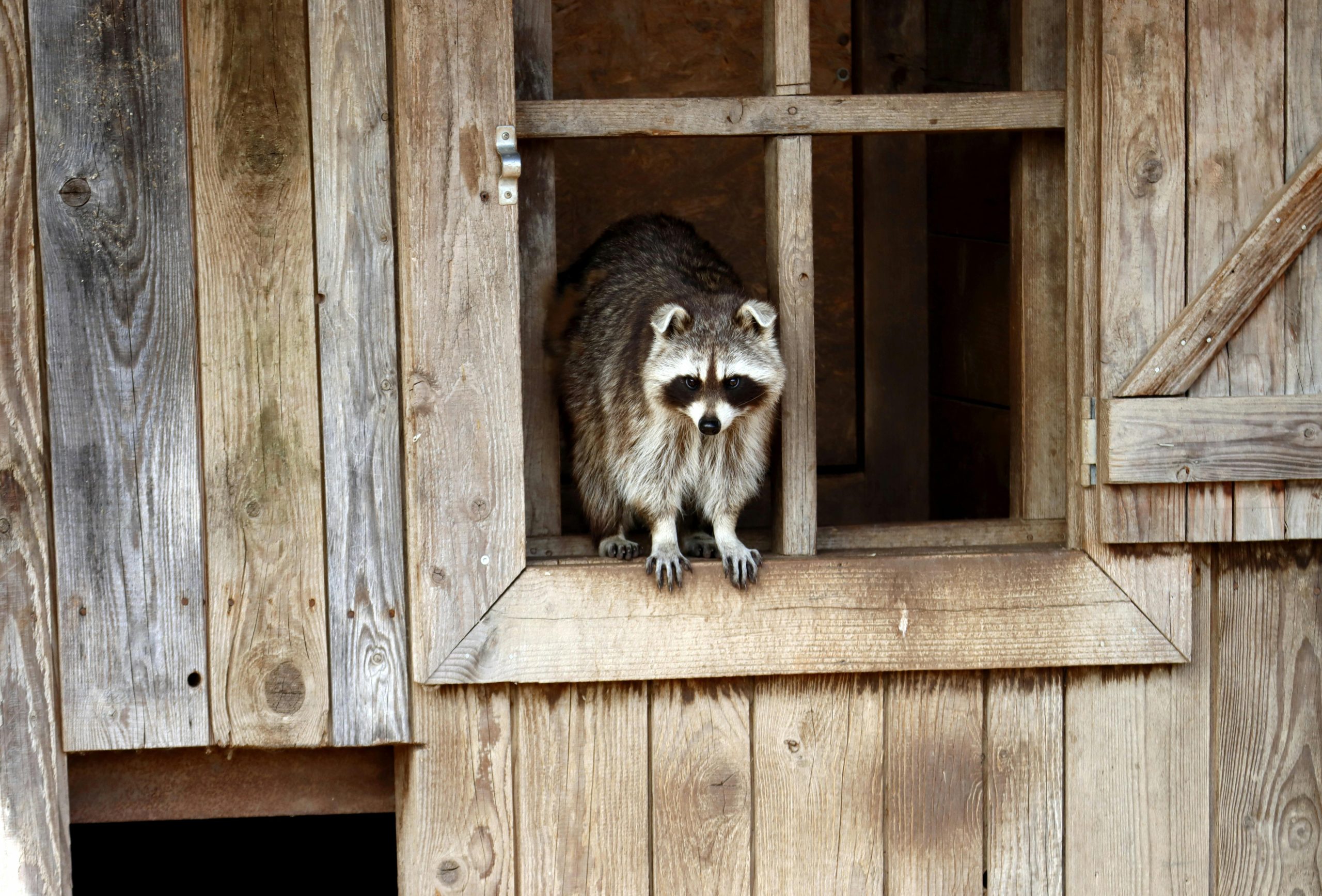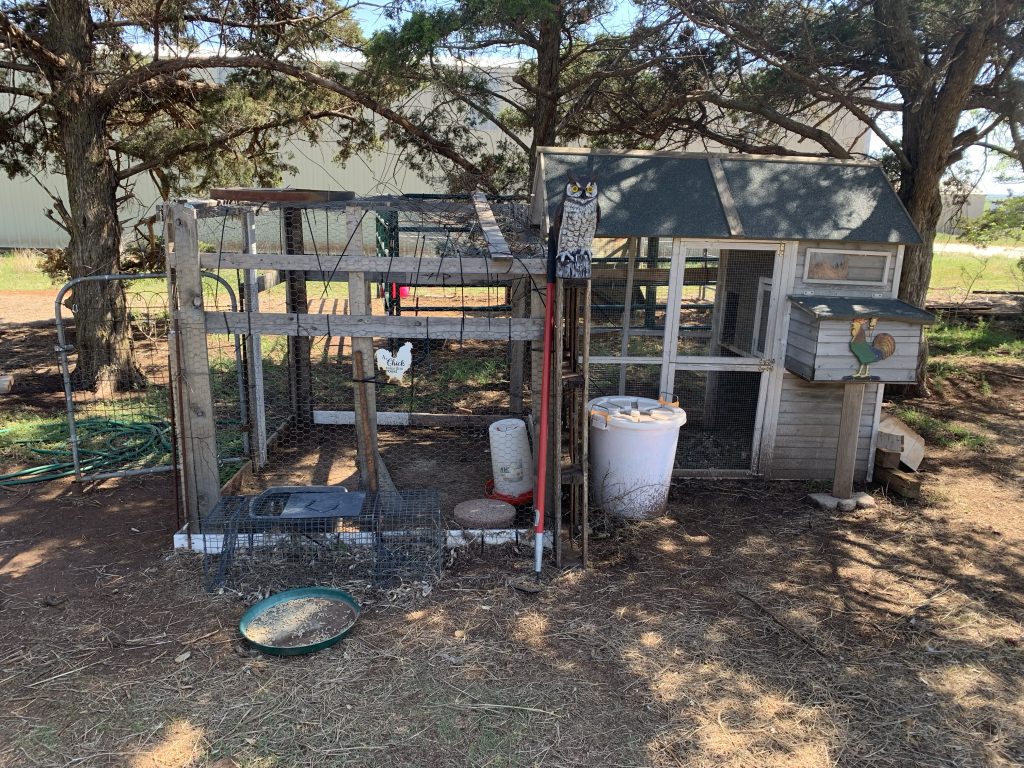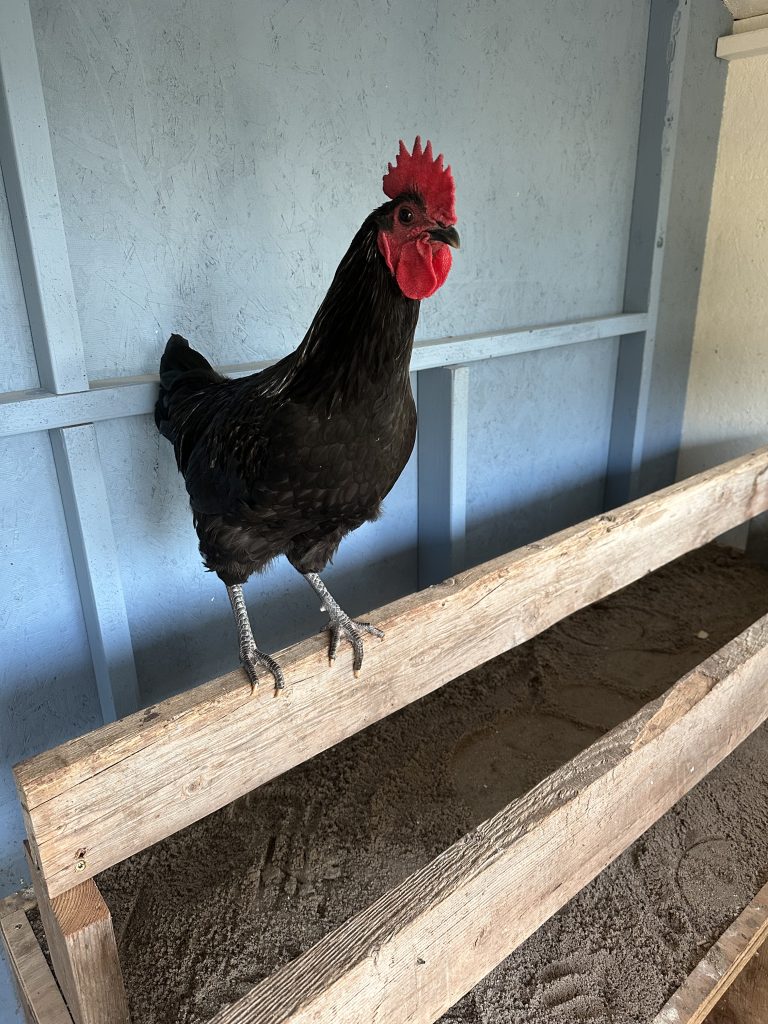How to handle predators in a chicken flock

In the world of backyard chicken keeping, there is no moment more fearful than when you realize a predator has discovered your flock and a silent war has begun for the survival of your flock. I’ve had quite a bit of experience with raccoons and bobcats, and I’ve learned it is a 24/7 job to ward them off once they’ve homed in on your girls.
A predator can take out a flock in one night in some cases, so it is crucial to be vigilant and prepared for thieving varmints. Some other predators that can be a threat to chickens that I have not had issues with include foxes (I hear they are the absolute worst), dogs, cats, rats, snakes, birds of prey, coyotes, wolves, weasels, minks, bears, badgers, skunks and opossum. They all pose significant danger to chickens, and you should be cautious if they are hanging around your coop.
Raccoons in the coop
Before I married my farmer husband in 2021, predators weren’t an issue for my small flock because I lived in town and my coop was inside a privacy fence. Things changed when I moved to the country. My original coop was purchased from a farm store and had seen better days by the time it made it to our current house.

There were vulnerable places in the fence, and I was using a bungie cord to close the makeshift gate. I’m pretty sure the raccoons laughed to themselves when they saw the easy entry I had provided them. Over the last few years, I have grown to despise raccoons more than any animal. I firmly believe if Satan had a pet, it would be a raccoon.
Although my coop was in rough shape, my first predator encounter wasn’t until October 2022, almost a year after moving the chickens to the country. I walked out to the coop to open the gate one morning and I saw feathers everywhere. I was dismayed when I realized two of my original hens that I had raised as chicks were missing. My heart sank. We were pretty sure a raccoon had found a way to slip through the gate and snatch them in the night. Honestly, I was lucky I didn’t lose my whole flock.
After grieving for them, I turned my anger to those masked thieves who visited my coop the night before. They had started a war they wouldn’t win. I was going to dispose of their whole family, and they were going to wish they had never visited my backyard. (Well, I was actually going to send my husband to do the dirty work, but you get the idea.)
The next night I was worried about the raccoons returning, so I shut the chickens in the coop early to make sure they were safe, and I double wired the gate for extra protection. Just before returning to the house, I thought I’d check for eggs and to my horror there was a huge raccoon in the laying box eating eggs. I screamed and he about choked on an egg yolk at the sight of me.
Then I realized I had just locked the chickens in the coop with a live raccoon and it would take too long to unwire the gate I had just secured. At this point he was coming down from the second level of the coop, to where the chickens were. I said some choice words to him that I shall not repeat, but believe me, he knew he needed to get out of there. Fortunately, I was able to open a side door and he excited the coop without meeting the hens.
I thought I was going to have a heart attack watching him scurry off and my only regret was that I didn’t keep a baseball bat by the coop. I would have shown him the meaning of pest control if it had been handy.
Rid yourself of raccoons
At this point I knew we had a huge problem. If a raccoon is coming to your coop in broad daylight to eat eggs, rest assured their whole sneaky clan knows about your coop and they will work relentlessly to kill every one of your hens. They will never stop unless you exterminate them. There is no other option.
Although my husband didn’t believe that raccoon would come back that evening after his frightening encounter with the blonde potty mouth, he did return just after dark and was trying to get in my coop. However, his attempt was short-lived as a bullet found him not five minutes after I saw him from our kitchen window. I slept well that night, but I knew there would be more trash pandas in the nights to come.
The best decision I made at this point was to set up a security camera in our backyard so I could watch the coop at night. I had a cheap one I had bought online, and it worked perfectly because it had a motion sensor. I would stay awake at night watching the camera and once they showed up, I’d send my sniper husband out to take care of business. That system worked quite well and eventually we disposed of the entire family, and I never lost another chicken to those sneak thieves.
Some people prefer to catch raccoons in live traps, however in our situation the traps didn’t work. I literally watched a raccoon pick up a trap and shake it to get the dog food out of it. For us, a gun was the best solution, but it depends on the circumstances and where you live. Not everyone can fire off a rifle in their backyard without consequences.
If you are wondering if it is legal to kill predators, it is if they are a threat to you, your livestock or pets. However, if you are dealing with a bird of prey, such as an owl, hawk or eagle, you cannot kill it because they are protected. Those situations become much more challenging because you must deter them without lethal force. I recommend checking into the individual rules for your state and city for specific guidelines and keep reading for tips and keeping birds of prey away.
Bobcats, a scary reality
Raccoons hanging around your coop are one thing, but a bobcat stalking your chickens by day is another matter entirely. I experienced this in the fall of 2023. While on vacation, one of our hens disappeared from the yard and only feathers were left. At first, we thought it could be a raccoon, only this attack happened in the middle of the day or early morning and raccoons are nocturnal hunters.
We also considered a bird of prey hunting from the sky. However, our house is wrapped with a shelter belt of cedar trees, providing ample refuge for chickens, so that option seemed unlikely. After losing three more hens to the mysterious culprit, the predator became blatantly obvious when I saw him in person.
One hot Sunday afternoon, my dogs alerted me to something outside. I ran out to check on my hens but didn’t see anything at first. They were all accounted for and free ranging in the yard.
Suddenly, the hair stood up on the back of my neck and I felt like something was watching me. As I turned, I saw a large bobcat not 30 feet from me and the hens. It was watching me as it slinked away and made a beeline around the corner of the shed and off to the pasture.
Bobcats are usually nocturnal hunters, but this one is not. It had obviously discovered my chickens and was returning every few days for a meal. Even though we had built a new coop by this point with awesome security features, the chickens were vulnerable every day while they free ranged.
After some research, we set up a camera in the backyard once again and set live traps. None of that worked. We never even saw the bobcat on camera either. Next, we tried tying a raw chicken leg in a tree to entice the bobcat to a specific place in the yard where he would be easier to shoot. No dice there.
After losing another chicken, I was at my wit’s end. In desperation, I came up with one more idea that turned out to be very successful. Bobcats fear people and if I could create the illusion that our backyard was full of people, he might be deterred.
I bought a cheap radio and plugged it in at the shed behind our coop. I turned it all the way up on the gospel station and it seemed to put the fear of God into that bobcat, because we haven’t lost a hen since it has been playing. When a predator is on the loose, you must get creative sometimes and try out as many ideas as possible to keep those birds safe from harm.
Proactive measures
Some other lessons I’ve learned in defending my coop are to never leave food outside of the coop at night. Leaving feed out trains predators to stop by your house for an easy meal whenever they want. They will see your chickens and realize they’ve hit a gold mine. Additionally, leaving food and water outside can vector disease from wild animals, such as bird flu.
Extra lighting around your coop is also a great idea. It will not only deter nocturnal predators, but it will also make them easier for you to spot if your coop is visible from your home.
If you have digging predators, such as foxes or dogs, install hardware cloth that can be attached to your coop and buried in the ground for extra protection. Remember, chicken wire is relatively easy to break and won’t always hold up to a predator who sees KFC in its sights. One way to protect chickens from birds of prey is to put up mesh netting or metal fencing above your chicken run so these large birds cannot swoop down from the sky and grab a chicken.
We built a new coop last year (read that article here) and I was adamant about installing an automatic door. It has been a lifesaver and I 100% recommend this method to make sure the gate always gets shut at dark. It can be difficult to manually open and shut a chicken gate every day and this door provides peace of mind and freedom for chicken keepers.
This may be an old wives’ tale, but many chicken keepers swear by owning at least one black chicken per flock. From the sky, they look like crows, and do you know who hates crows? Hawks. They avoid them at all costs. I can’t confirm that this works, but there are lots of beautiful black chickens if you want to add one to your coop. Just don’t expect this to prevent an issue.

Having a rooster of any color can be helpful in the event your flock is attacked. A rooster’s job is to protect the hens, and many have sacrificed themselves for the good of the girls. They will fight until the death and give the hens time to flee and hide. I haven’t had a rooster provide this type of bravery, but yours might. Maybe I’ve just been raising spineless, chicken-hearted roosters, I don’t know.
To me, the key to staying ahead of predators is to pay attention every day when you gather eggs. Take note of the vibe in the coop and among the flock. Are they nervous, stressed or have they stopped laying eggs? If you were a hen and you saw a raccoon, try to break into your house while you were sleeping, you’d be tense too.
If you see large feces in your yard and you don’t own a dog, that could be an indicator that an animal has been checking out your operation. I was amazed at the number of animals that visited every night while I had my cameras up. Other than raccoons, there was a large coyote that snooped around and eventually walked right up to our front door. There were also opossums, armadillos, feral cats and many rabbits. Even if your yard seems like a ghost town, it comes alive in the darkness.
The traditional scare crow or decoy can be helpful as well. I used an owl decoy for a while when a squirrel was getting into my chicken feed. Just make sure to move whatever you are using around the yard from time to time so that predators don’t get used to it.
Dealing with predators around chickens is a challenge every backyard bird keeper will face at some point in their chicken adventures. However, if we train ourselves to be observant and proactive, we can prevent predator attacks and save our cherished girls from certain death.
Lacey Vilhauer can be reached at 620-227-1871 or [email protected].



